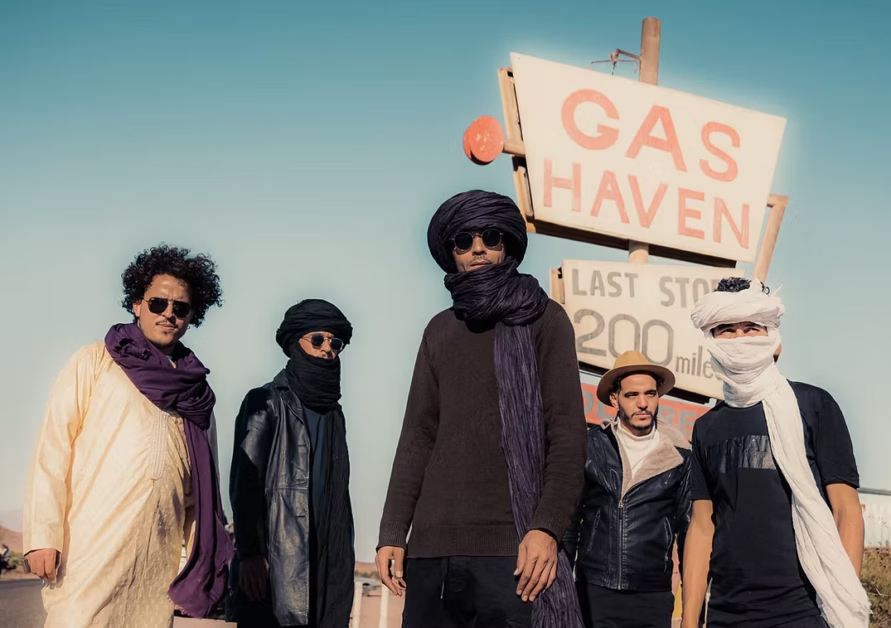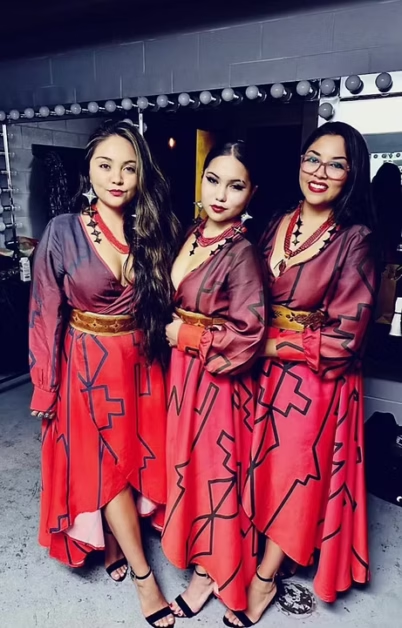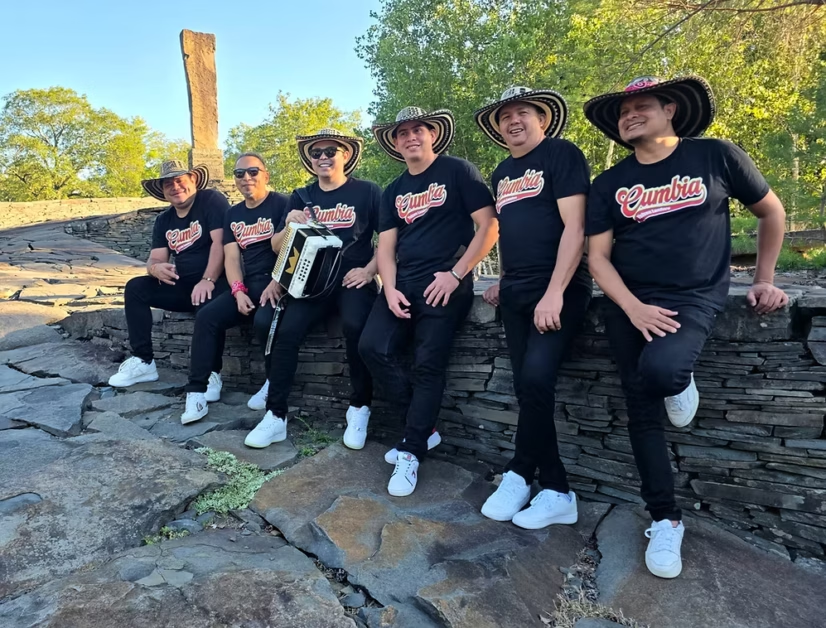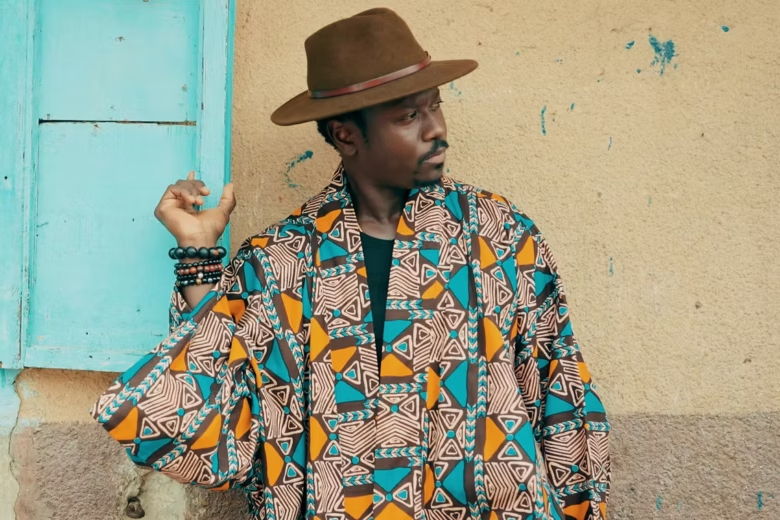,
It’s about time for earthlings in the Duke City to hit the streets and moonwalk through Downtown during an annual festival that has celebrated multinational culture and promoted worldwide unity with music for decades. This year might be the last chance – at least for now – for people from all walks of life to join forces, dance like there’s no tomorrow and show the Empire that they’ll never be able to turn down the music in Burque. ¡Globalquerque!: The Final Orbit is blasting Civic Plaza with tunes played by awarding-winning musical acts hailing from distant locations — everywhere from the deserts of Morocco to the mountains of South America – beginning at 4 p.m. on September 20. This year’s theme is “artivism,” which combines the words “art” and “activism.” Think of it as the blending of creativity and advocacy, something Festival Founder, Director, Producer and Curator Tom Frouge has done with the festival since its inaugural launch 20 years ago. He says he doesn’t know what the future of the festival will be, but as of right now, it’s the final orbit – at least for this leg of the mission.
“It’s going to be a great party, and there will be dancing in the streets,” Frouge says. “If you know the history of that song, you know it was put out as a pop song, but the civil rights movement took it over, and it became more than just for dancing. I hope that’s what we’re going to show people this year – that we are about diversity, unapologetically. We are about equity, unapologetically. We are about inclusion, unapologetically. And we always will be, and we always have been.”

This year’s big blowout welcomes musical acts and artists such as Bia Ferreira, a Brazilian singer, composer and artivist who defines her music as “MMP” or “Música de Mulher Preta” (Black Woman Music) and explores topics such as feminism, anti-racism, homophobia and love to the tune of funk, reggae and soul. Also on the bill are Tarwa N-Tiniri, an “amazingh” desert blues band from Ouarzazate, Morocco whose name means “sons of the desert.” Senegalese singer, songwriter and multi-instrumentalist Cheikh Ibra Fam of Orchestra Baobab will hit the Civic Plaza stage pairing modern hip-hop and R&B beats with Afrobeat horns and Senegalese traditional music. An artivist in his own right, Fam is engaged in social and cultural causes in Africa and around the world.
Frouge says because ¡Globalquerque! has always represented indigenous people from the United States, they just added two special musical guests from Taos Pueblo. The Mirabal Sisters will open the festival with harmonized vocal performances, singing prayer songs from the Native American church. You may have seen or heard them singing with their father and two-time Grammy winner Robert Mirabal and his band Rare Tribal Mob.

We said there will be dancing in the streets, so naturally ¡Globalquerque! has invited someone with a very cool Albuquerque connection who plays a genre of music that’s spreading infectious grooves across the planet exponentially these days. Yeison Landero — who is known as “el heredero (heir) de la cumbia” — has “the music of the people” in his blood and rhythm in his DNA.
Cumbia Without Borders: Yeison Landero
Yeison Landero was born in San Jacinto, Colombia, an area known for farming and famous to music fans worldwide, because many say it’s where the genre we know today as cumbia likely developed. The Landero family hails from a region called Los Montes de Maria, where they play a style of cumbia that is very influential globally, especially in Spanish-speaking countries like Mexico, Argentina, Chile and many parts of the United States. Back in the day, Yeison’s grandfather Andres Landero played the music with traditional instruments and dared to incorporate accordion into the music, further revolutionizing the already revolutionary genre. Yeison Landero says he didn’t just learn the music from his grandfather, he also inherited the accordions that Andres Landero played and used during recording sessions throughout his life. Currently, Yeison Landero literally carries his family’s musical legacy around the world by playing his grandfather’s instruments on tour.

Landero is no stranger to New Mexico. He had his first visit here in 2018, and during a return mission, he had the opportunity to interact with the local community in Chilili — he actually made a song about it that hasn’t been released yet. Landero does have a very important Albuquerque connection: his bandmate Andres Ramirez lives here when he’s not on tour with the band. Ramirez was kind enough to hop on the phone while The Paper. talked music with Landero – who prefers to interview in Spanish – and translate for us. To put into perspective just how famous Andres Landero was, the two bandmates told us a story about an interview with punk rock pioneer Joe Strummer, frontman for The Clash.
“They asked him, ‘So what kind of music are you listening to?’ and he pulled out a cassette with Andres Landero’s music and said, ‘This is what everyone should be listening to right now.’ So that’s kind of what opened the doors for cumbia in other countries,” Landero and Ramirez say. They were asking Strummer about punk music and he said, “This is the most punk [music] I’ve ever heard.”
Landero and Ramirez say musicians in towns close to San Jacinto, Colombia integrated traditional drum music and Indigenous chants and flutes with Spanish influences such as accordion and lyrics, developing the sound we know as cumbia today. Because the music was born in the farms, they say one of the reasons working-class communities in huge Spanish-speaking cities such as Monterrey or Mexico City identify with cumbias is because the lyrics involve themes relating to identity, whether that refers to class, skin color or both simultaneously.
“Cumbia was born from a feeling of resilience,” they say. “The music always talks about the struggles of being a campesino – a farmer –and it’s kind of like the blues and soul here in the United States. Cumbia is the music of the people. It talks about the sadness and the happiness and nature and things that happen throughout the day. So that being said, all the people that play cumbia during the day were farmers, so they were not foreign to what they were talking about.”
Just last week Landero and Ramirez had a concert in San Francisco where they played for farmers working in the Napa Valley. They say the concert goers were almost all Latinos – Mexicans and Central Americans – and it was a very “connecting” concert, because people knew the music, even though they were from another generation. Landero and his bandmates have work visas and tour pretty extensively throughout North and South America and Europe, and they say every time they’ve come to the United States it’s been “smooth and no troubles.”
“[Landero] says we’re blessed by the cumbia, and we haven’t had any problems. And there are two bands that come from San Jacinto where Landero convoys from, and they have not had any problems at all,” Ramirez says. “[Landero] said he’s trying to keep that message positive – a message of union and unity – and with cumbia, he’s trying to make people probably forget about the struggle they are going through, dancing and playing cumbia for a little bit, and keeping all of the Latinos united in the United States.”
Landero says it’s cool to be playing a town where one of his bandmates identifies with the crowd, and it’s going to be exciting for him to connect with an audience in a different way. He extends an invitation to this concert not just to Latinos, but to people of all ethnicities and backgrounds, because he knows Albuquerque is very diverse, and he feels that cumbia unites everybody without borders.
“[Landero] says cumbia is a feeling that comes from the earth, and it’s something that has spread all over the continent. And that’s probably why everybody connects to it. He wants to make emphasis that it was a feeling and a rhythm that was born in Colombia and is all over Latin America, and due, no doubt, to the Latinos who have come here, the United States,” Ramirez says. “With the cumbia, they get that feeling of belonging, and kind of a nostalgic feeling about going back home. And so do people who were born here, but they still feel like they’re looking for their roots. We’ve come to remind them where they come from with the cumbia. Even the Latinos that don’t understand the language can feel it, and we can dance cumbia because it’s in our DNA. [Landero] says even for Europeans and Asians and people from other latitudes, the feeling of the drum brings you back to the roots, to the origin, and that’s why you can feel it even if you’re not a Latino.”
Live Long and Prosper: Frouge’s Legacy Continues
As an organization, ¡Globalquerque! isn’t going anywhere, even if the big, 20-year-long Albuquerque dance party and concert series is taking an extended intermission after this weekend. Frouge says there are two major reasons why this might be ¡Globalquerque!’s final orbit, and the first is practical: they only received about a third of the funding they were expecting this year. They are one of many nonprofits bleeding because of what Frouge calls a “laundry list” of federal funding cuts. He says when the National Endowment for the Arts begins to cut funding, it trickles down to festivals and art series from all disciplines.
The second reason is a bit more complicated, and political. It truly is a much-needed breath of fresh air hearing that Landero and his convoy from south of the U.S. border have been traveling through the states with no major hiccups, but we all know that hasn’t been the case for everyone traveling internationally these days.
“I’m looking down the road at visas for a festival that does international music. Our visa process already sucked, and now it doesn’t only suck, it’s getting more expensive. It’s getting scary,” Frouge says. “The political landscape – globally, as conducted by the present administration – is one of vengeance and pettiness. It’s something that anybody that deals with international artists has to think about, and that’s with the [artists] that want to come. I know more and more international artists are saying ‘We’re not fucking touring the U.S. We’re gonna go to Canada, we’ll go to Mexico. We’re gonna skip the U.S.’ And on top of that, for the first time in U.S. history, the United States is on some countries’ travel advisory lists.”
Frouge says he will continue looking at other ways to continue providing the festival’s educational component, which is really what ¡Globalquerque! was founded around to begin with. The ¡Globalquerquito! School Outreach program will take place later in the year in partnership with the nationally syndicated radio program The Children’s Hour, which runs nationally and airs on KUNM Saturday mornings. In October they’re curating the music at the 3rd annual two-day Dia De Los Muertos Fiesta on Santa Fe Plaza. And as things cool down even more, ¡Globalquerque! will be chillin’ up north, presenting Robert Mirabal’s Winter Celebration shows at Taos Center For The Arts on Dec. 12 and 13. So there’s plenty to look forward to in the future.
Frouge says his labor of love was never meant to be just a series of concerts. The ¡Globalquerque! nighttime concerts were “the cherry on the top,” but the contextualization and education that went on during the festival’s day programming and the school outreach component – teaching students about other cultures – was always his and his colleagues’ ultimate mission.
“I may be naive, but I truly believe that the more you understand other cultures, the harder it is to bomb them, right? The harder it is to put them in a box as the other or ‘those people over there.’” he says. “We aren’t abandoning the mission – the ongoing mission to recognize our similarities, while we try to understand and perhaps celebrate our differences – and the only way to do that is to contextualize what’s going on. The music or the dance underlies it, obviously, but it’s also about just being able to talk.”
¡Globalquerque!
Saturday, Sept. 20
5 p.m.
Albuquerque Civic Plaza
Free

